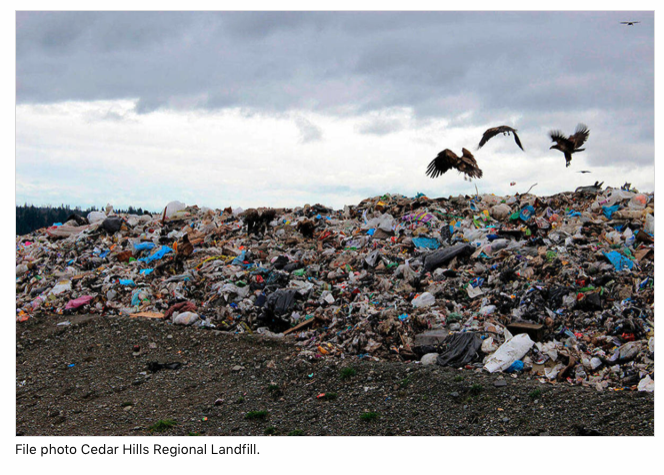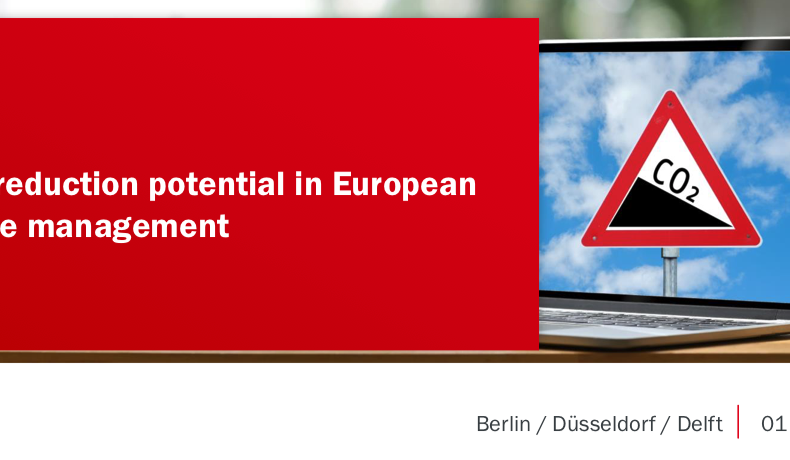While we favor a circular economy without landfilling or WTE/Incineration the nature of society (and consuming) does create waste that cannot be avoided or recycled. In that case waste should first be made inert, toxics destroyed, and materials and energy recovered so that landfilling, the worst option for dealing with waste, can be avoided by all means possible. A circular economy is essential for sustainable development and the continued existence of human society. When landfilled,…
Unfortunately, these extreme events, and the conditions they foster – flooding, wildfires, property damage, loss of life – are becoming the new normal, thanks to global warming. And there are other, less obvious but equally damaging, effects as well. As the ocean warms and becomes more saturated with carbon dioxide, fish and other creatures in the marine food chain are adversely affected. Diseases once limited to the tropics are spreading into the temperate zones. Coastlines, from Louisiana to Alaska, are receding, due to more frequent and more powerful storms, rising sea levels, and, in Alaska, the loss of sea ice. The message should be clear: we are running out of time to turn this trend around. Even insurance companies have stopped insuring the homes in particularly affected areas.
…
What can be done now to reduce emissions relatively quickly? The answer is simple: the US must stop landfilling untreated municipal solid waste. A recent (July, 2020) article in the journal Environmental Health and Safety stated that with regard to waste management, “Landfilling is the most greenhouse gas (GHG)-intensive option, emitting nearly 400 kg CO2e per tonne of organic waste…the GHG footprint of landfilling organic waste is higher relative to composting or waste-to-energy by as much as a factor of 9, even when landfill gas is captured and utilized.”

…
Advocates of sustainable energy and waste management have been critical of the King County Solid Waste Division’s apparent push to expand the landfill. In September 2021, the Institute for Energy and Resource Management issued a public statement calling the King County Solid Waste Division’s environmental impact statement a “boondoogle,” and accusing the county of “going through the motions but having the conclusion decided well before hand.”
President of the Institute for Energy and Resource Management, Philipp Schmidt-Pathmann, has been increasingly vocal in his criticism of the King County Solid Waste Division and what he believes has been a lack of investment in recycling infrastructure and systems improvements. He cited stagnate rates of recycling in the region over the years.
Schmidt-Pathmann also has expressed his disbelief in the county’s studies, which claim the possibility of high rates of methane recapture from the landfill. Schmidt-Pathmann believes that the county has overinflated the rates of methane that can be captured as a way of making a landfill look like a more viable and sustainable waste management method than he believes it truly is.
He expressed his skepticism regarding the county’s reported rates of methane capture in a letter to the director of the King County Solid Waste Division in November of 2021.
…

…
This potential sign of state support could also renew discussions around broader waste planning efforts in Florida. While all forms of solid waste disposal generate emissions, landfill methane is an especially potent contributor to climate change and combustion facilities have a lower greenhouse gas emission profile.
“The support to level the playing field is indeed a step in the right direction,” said Philipp Schmidt-Pathmann, CEO of the Institute for Energy and Resource Management. “The better step would be to phase out landfilling altogether of untreated waste [and] focus on an integrated waste management system.” Schmidt-Pathmann and his colleagues also want to see more focus on the greenhouse gas implications of resource management.
…

One sensitivity explored the comparison of adopting a 20 vs a 100-year time horizon. This clearly highlighted the large impact of methane emissions from landfills, in accordance with the recent IPCC report’s emphasis on the urgency to reduce GHG-emissions.
Another sensitivity investigated the CO2eq savings by energy recovery. The average electricity and heat mix of the European grid (and its evolution with a higher penetration of renewables in the future) is considered as default assumption for energy substitution. A sensitivity analysis with a marginal approach has also been developed which means that processes which recover energy from waste avoid the most carbon intensive conventional power generation technologies – fossil fuel sources. This sensitivity highlights even more the great contributions of energy recovery from waste in a decarbonisation perspective.
The waste management industry has cross-industrial interlinkages by making valuable waste-derived content available to the whole economy as secondary resources for material and energy uses.
